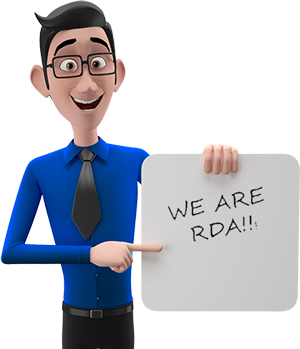Every planned development and organization should keep an adequately funded reserve account. This account can be what protects your community from certain financial doom when major costs crop up in the future.
What Is a Reserve Account?
A reserve account is a financial account that holds the money set aside by an association over time to pay for future repairs and replacements of the association’s assets. By saving money for these major expenses every year, an association can equally distribute the costs among the members who stand to benefit from these assets.
With a reserve fund in place, an association can realistically anticipate major replacement or repair costs that may be necessary in the future. Many associations suffer from a severely underfunded or a total lack of a reserve account. These associations will likely need to levy hefty special assessments or take out a sizable loan when faced with a major replacement or repair of an asset.
Reserve funding also helps enhance property values. All homeowners wish to protect their investments and aim for a high resale value. And they are smart enough to know that an association with a properly funded reserve account is less exposed to risk. Mortgage lenders and loan providers also typically consider an association’s reserves before approving applications and setting rates.
Reserve Account vs Operating Account
Associations normally maintain two main accounts: an operating account and a reserve account.
The operating account or operating fund covers expenses that occur on a regular basis (at least once every year). Operating expenses are predictable and have no adverse effect on the yearly operational budget of an association. Even if the expense is large, if it is something the association pays for at least annually, then it is considered an operating expense.
Some common examples of operating expenses include:
- Utilities (electricity, gas, water, etc.)
- Landscaping services
- Pool maintenance services
- Cleaning services
- Management fees
- Office supplies
- Licenses and permits
- Minor repairs (including tile roof and equipment repairs)
In comparison, the reserve account or reserve fund covers major expenses that must be budgeted for in advance, i.e. before they are incurred. These are typically expenses that occur less regularly and would have a sizable impact on the yearly budgetary process of an association if unaccounted for.
Some common examples of reserve expenditures include:
- Roof replacements
- Pool equipment replacement
- Pool furniture replacement
- Deck resurfacing
- Fencing replacement
- Asphalt overlays
- Interior furnishings
- Tennis court resurfacing
How Does a Reserve Account Work?
The goal of a reserve fund is to set aside enough money to cover the cost of major repairs and replacements when the need for them arises. An association with substantial reserves, for instance, would not need to levy special assessments or take out a loan once its roof deteriorates beyond repair.
A reserve account is funded through regular fees. For a homeowners association or condominium, these fees come in the form of owner dues. Similar organizations such as golf clubs and country clubs use the same blueprint and draw from membership dues. These due are then allocated appropriately between the operating budget and the reserve account.
Associations, though, should not rely on pure speculation when determining how much money to deposit in their reserves. Instead, they should invest in a reserve study. A reserve study provides calculations on the correct level of funding and presents a funding schedule that associations can follow.
In some states, reserve studies are mandated by law for homeowners associations and condominiums. The governing documents of an association may also indicate whether or not a reserve study is required. Even if state laws and governing documents are silent, an association would still be wise to conduct a reserve study to ensure that its reserves are adequately funded.
Are Reserve Funds Required?

As with reserve studies, reserve funds may or may not be required by state law. There are a few states that require associations to maintain a reserve account. California is one of them, with the requirement outlined under Civil Code Section 5550. In addition to state laws, an association’s CC&Rs or bylaws may also require it to maintain a reserve fund.
Some shareholders may feel that a reserve fund is unnecessary because they don’t get to experience immediate benefits. However, a reserve fund acts like a fair-share plan, where each member only pays for what they use. Relying on special assessments every time a reserve expenditure comes up would be unfair.
A reserve fund also ensures that an association’s assets and components are well-maintained. An HOA board has a fiduciary responsibility to maintain the common areas and elements of the community. Part of that responsibility is making sure the association has enough funds to cover such costs.
Safety is another top consideration. When components aren’t properly maintained, they can malfunction and break down. In due time, these components can fail altogether, bringing about disastrous consequences. The Surfside condominium collapse in 2021 is a prime example of the tragedy that may come with an underfunded reserve account.
What Is a Financial Reserve? Answered!
All in all, it is easy to see why a reserve account is so crucial to a homeowners association – or any other organization, for that matter. There is a lot at stake, and a well-funded reserve account can be the only thing that separates success from total failure. Many associations find it difficult to come up with a funding plan themselves, though, so hiring a professional is always the way to go.



